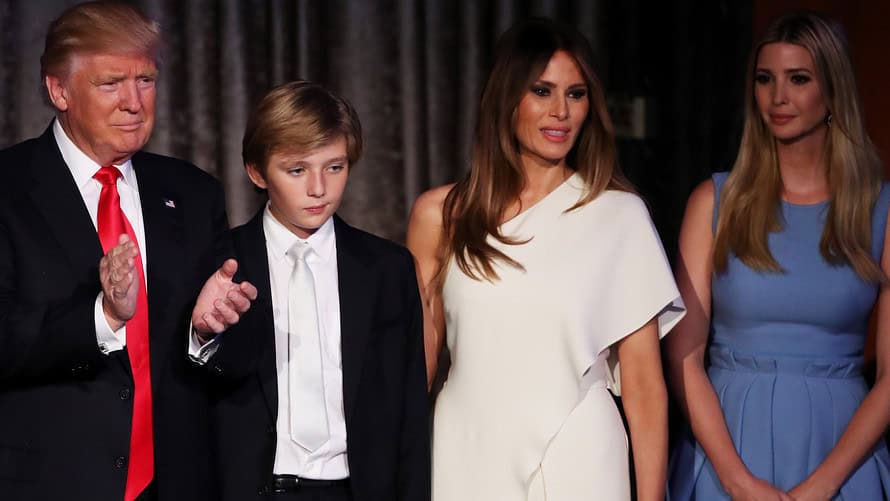
A new report alleges that the Trump family dodged taxes on Fred Trump’s estate
President Trump’s family may have had a very complicated way of processing estate taxes over the years. But very few families actually are taxed on their estates.
The state of New York on Tuesday launched an investigation into President Donald Trump following a New York Times report alleging that he and his family set up a web of fraudulent financial schemes to transfer money from one generation to the next. Trump was given at least $413 million in today’s dollars from his father Fred’s vast real estate empire. (Through his lawyer Charles Harder, President Trump denied the report and said the president had virtually no involvement.)
But how many people actually pay the federal estate tax? Only 5,219 households.
Those families paid roughly $18.3 billion in taxes on their estates that were valued at $107.8 billion back in 2016, the most recent year for which data is available, according to the Internal Revenue Service. Estate taxes, which are also referred to as “death taxes” in conservative circles, are levied on transfers of property after death.
But these days far fewer people are likely paying federal estate taxes. The 2017 tax reform package raised the requirements to qualify for the estate tax. Now, the first $11.18 million in assets ($22.4 million for couples) are exempt from the tax. Previously the cut-off was half that amount: $5.49 million or nearly $11 million for couples.
Consequently, far fewer households have estates that are high enough in value for the federal estate tax to apply. The Tax Policy Center estimated that as of 2018 only 1,700 estates would owe taxes following the passage of the tax reform plan in Congress, which equates to less than 0.1% of all deaths in the U.S. And the amount in taxes they would owe would also shrink the amount these individuals owe to just $13.6 billion.
However, many more households have to pay estate taxes to state government each year. As of 2018, 17 states imposed an estate or inheritance tax, according to the Tax Foundation. Maryland, for instance, levies both forms of taxes.
The threshold for these taxes is generally far lower than the federal version. In Oregon and Massachusetts, for instance, only the first $1 million in an estate’s assets are exempt from the state tax.
Five states — Nebraska, Iowa, Kentucky, Pennsylvania and Maryland — charge inheritance taxes, which are imposed on the receipt of the proceeds of an estate. Rather than an estate tax, which is imposed on the net value of the estate, these are paid based on the share of an inheritance someone has received as well as their relationship to the deceased. Relatives generally receive preferential treatment, and direct descendants are sometimes exempt.
Since 2005, when a federal credit for state inheritance and estate taxes paid was eliminated, a growing number of states have phased out their estate taxes. At that time, all 50 states levied some estate or inheritance tax, according to the Tax Foundation, but that number has steadily shrunk since then. Delaware and New Jersey repealed their estate taxes in 2017, though New Jersey still has an inheritance tax. Other states — including New York, Minnesota and the District of Columbia — have increased their exemption thresholds.


